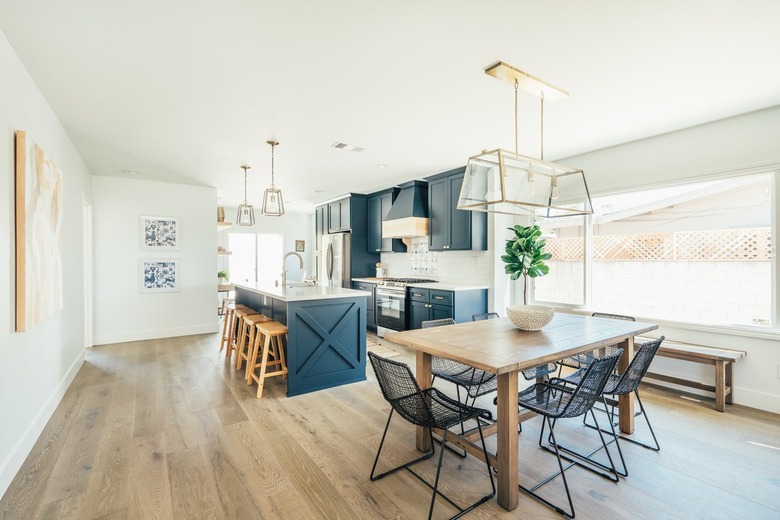Advantages And Disadvantages Of Natural Lighting
You might think the advantages of natural light are limited in the home, but there are plenty of perks other than just lighting your space. Poor planning can lead to a few disadvantages, though. Lighting affects how your home's colors appear, and it may play a part in your overall comfort and even health. Weigh the pros and cons to make the most of every sun-filled nook and naturally lit cranny in your home.
Natural Light and Color
Natural Light and Color
If you've ever questioned why paint swatches look different at home than they do on the store's display shelf, lighting is the answer. One of the biggest differences in natural light vs artificial light in architecture is how colors appear.
Natural light makes everything, including flooring, furniture, houseplants, wallpaper and paint, look its truest color depending on window direction and time of day. Midday sun is more neutral than morning and evening sunlight, which resemble warm candlelight.
Too Much Sun
Too Much Sun
Although it's warming and cheery, the sun's ultraviolet rays can fade color. Natural light that shines on fabric-upholstered furniture, artwork or other interior features can gradually cause faded patches on those items and make them look old or outdated.
Positioning those items so they aren't in direct sunlight can minimize the fading effects. When you're not using rooms that fill with sun at certain points of the day, close the curtains or blinds to avoid color-robbed rugs, art and upholstery.
Natural Light and Temperature
Natural Light and Temperature
Along with natural light comes increased temperature. You likely won't complain about this in the cooler months because you can soak up the heat and reduce your heating costs.
But when the days grow long and the mercury threatens to bust out of its glass tube, you may second guess the sun's value. Too much heat may force you to run your cooling system more than normal. Opt for windows with a low-emissivity film that reflects much of the sun's infrared light from outside yet helps retain some of the home's heat when the mercury drops. Light- and heat-blocking drapes do the same but at the expense of natural light.
Energy Efficiency
Energy Efficiency
One of the most basic natural lighting techniques in architecture is the placement of windows, and it can also impact the energy efficiency of your home. South-facing windows maximize natural light, especially in the winter when you want the heat from the sun. Windows on the west and east side of your home give you lots of direct natural light, but they also heat up your home in the summer, which can increase cooling bills.
Install kitchen and bathroom exhaust fans that vent outdoors to get rid of much of the heat windows and the stove produce, and the excess humidity that makes warm air feel warmer. Oscillating fans decrease the need for air conditioning and closed curtains.
Personal Advantages of Natural Light
Personal Advantages of Natural Light
In the same way natural light makes your home's interior colors look different, it makes skin appear natural, more radiant and less shadowed than with artificial lighting. Natural light may improve mood, and it decreases eyestrain and headaches. As for feng shui, a home filled with natural light welcomes wealth, puts zip in your morning step and opens your mind to welcome new opportunities.
